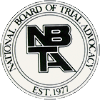|
|
|
|
|
Pfizer reprimanded by the FDA for false and misleading advertising and promotion that make unsubstantiated claims of Celebrex’s safety profile.
|
|
|
Pfizer requested FDA approval of Bextra, relying largely on its claims that the drug was similar to Celebrex and would have a similar safety profile.
|
|
|
Bextra was approved by the FDA for use for menstrual cramps, rheumatoid arthritis, and osteoarthritis. The drug was not approved for use with acute pain (Vioxx was).
|
|
|
Pfizer issues press release regarding study that supports use of Bextra in the treatment of acute pain following dental surgery. This is improper promotion, since FDA refused to approve Bextra for use in patients with acute pain.
|
|
|
The label (warnings) for Bextra were first changed to reflect that the drug should not be used in patients with sulfa allergies due to reports of cases of severe skin reactions. First Dear Doctor letter also issued.
|
|
|
FDA issues press releases explaining label change and expanding its focus.
|
|
|
FDA rejected Pfizer’s application to approve Bextra for use in migraine patients.
|
|
|
The label (warnings) for Bextra were changed for the second time to reflect that some patients had died due to Bextra-induced Stevens Johnson Syndrome.
|
|
|
Vioxx is withdrawn from the market. Pfizer attempts to capitalize on this by issuing press release and advertising that “Bextra’s cardiovascular safety profile is also well established in long-term studies.”
|
|
|
Pfizer issues press release and sends letters to physicians noting: “Available clinical trial data in patients treated with Bextra . . . do not suggest an increased risk of cardiovascular thromboembolic events.” This press release is false in that Pfizer has since acknowledged that it knew that a study completed in August of 2004 had shown an increased risk of heart attacks in patients who had undergone bypass procedures previously.
|
|
|
Pfizer files 8-K with SEC noting “Celebrex and Bextra continue to perform well by exceeding year-to-date sales projections” with this “positive trend to continue as more doctors and patients consider Celebrex and Bextra as effective, appropriate treatments.” Also noted again that available clinical information for Bextra suggests “no increased risk of cardiovascular thromboembolic events in patients.”
|
|
|
Dr. David Graham of the FDA testified before Congress that the public should be as concerned about Bextra as they were regarding Vioxx given the lack of solid information substantiating the safety of the drug.
|
|
|
The label for Bextra was changed for the third time to add a “black box warning” for SJS and TENS, notes that the highest risk is within the first two weeks of use, that Bextra had a higher incidence of serious skin reactions than other Cox 2 inhibitors.
|
|
|
FDA issues Talk Paper on SJS risk associated with Bextra.
|
|
|
New England Journal of Medicine publishes Vanderbilt study noting that Bextra increases the risk of serous CV outcomes by 300%.
|
|
|
American Heart Association journal (Circulation) publishes Furberg/Fitzgerald study showing that Bextra was associated with a 300% increased risk of CV events over placebo.
|
|
|
Public Citizen, a consumer organization, files a petition requesting that the FDA remove Bextra and Celebrex from the market.
|
|
|
Wellpoint study published (7,000 participants, over 40 years of age) noted that entire class of Cox 2 drugs increase risk of heart attacks and stroke, found that Vioxx and Celebrex users had 20% increase risk of heart attack and stroke and that Bextra users had a 50% increased risk.
|
|
|
An FDA Advisory Panel begins an exhaustive review of the safety of all Cox 2 inhibitors.
|
|
|
FDA Advisory Panel concludes that cardiovascular risk associated with Celebrex is smaller than the risk associated with Vioxx and Bextra. Voted that all 3 drugs should remain on the market (17-15 in favor of Vioxx, 17-13 with 2 abstentions for Bextra, and 31-1 for Celebrex). Later learned that 10 of the members had ties to the pharmaceutical industry. If their votes are ignored, would have been 14-8 to keep Vioxx off of the market and 12-8 to remove Bextra.
|
|
|
Pfizer continued to deny any cardiovascular risk associated with Bextra as evidenced from promotional materials provided to physicians the day prior to withdrawal indicating that “more than 10 studies show no apparent increase in the risk of heart attacks and strokes in patients with osteoarthritis and rheumatoid arthritis.”
|
|
|
Pfizer removes Bextra from the market, at the request of the FDA.
|





















